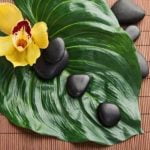Are you looking to create a peaceful and harmonious space in your bedroom? Implementing feng shui bedroom layouts can help you achieve just that. Feng shui, an ancient Chinese practice, focuses on arranging your environment to create balance and promote positive energy flow. In this article, we will explore the basics of feng shui, the importance of applying it in your bedroom, and common layout mistakes to avoid.
Feng shui principles emphasize the significance of creating a supportive and nurturing environment that can enhance various aspects of your life, including sleep quality, relationships, and overall well-being. By understanding the basics of feng shui and how it can be applied to your bedroom layout, you can transform your space into a sanctuary that promotes rest and relaxation.
From the placement of furniture to the use of colors and elements, feng shui offers a holistic approach to designing a space that harmonizes with nature’s energies.
When it comes to designing a feng shui bedroom layout, there are key considerations to keep in mind. Avoiding common mistakes such as cluttered spaces or improper furniture placement is crucial for maintaining positive energy flow.
In the following sections of this article, we will delve deeper into the elements of a balanced feng shui bedroom, tips for personalizing your layout, and strategies for implementing feng shui in small spaces. Whether you are looking to improve your sleep quality or simply create a more tranquil atmosphere in your bedroom, feng shui can provide practical guidelines for achieving these goals.
The Basics of Feng Shui
Feng Shui is an ancient Chinese practice that focuses on creating harmony and balance in one’s surroundings. The principles of Feng Shui can be applied to various aspects of life, including the layout and design of a bedroom. In a Feng Shui bedroom layout, the goal is to create a space that promotes relaxation, rejuvenation, and positive energy flow.
To understand the basics of Feng Shui, it is essential to look at the key elements that influence the energy in a room. These elements include the placement of furniture, colors used, lighting, and overall organization. By following these principles, you can create a space that not only looks aesthetically pleasing but also feels harmonious and peaceful.
When designing a Feng Shui bedroom layout, it is important to consider the bagua map. This map divides the room into nine areas that represent different aspects of life, such as health, wealth, love, and career. By aligning key pieces of furniture with these areas on the bagua map, you can enhance specific areas of your life based on your personal goals and intentions.
In order to create a balanced Feng Shui bedroom layout, it is recommended to follow certain guidelines such as incorporating natural materials like wood and plants, decluttering your space regularly to allow for smooth energy flow (chi), avoiding having electronics in your sleeping area, and ensuring that your bed is positioned facing the door but not directly in line with it.
By implementing these practices, you can create a serene and harmonious environment conducive to better sleep quality and overall well-being.
Importance of Feng Shui in the Bedroom
Feng Shui is an ancient Chinese practice that focuses on harmonizing individuals with their surrounding environment. In the context of the bedroom, Feng Shui plays a crucial role in enhancing the overall well-being and quality of sleep for those who occupy the space. The layout and arrangement of furniture, colors used, and even the placement of decorations are all key components in creating a harmonious energy flow within the bedroom.
Creating a Peaceful Retreat
One of the main reasons why Feng Shui is so important in the bedroom is that it helps to create a peaceful retreat where you can unwind, relax, and ultimately get a good night’s sleep. By implementing proper Feng Shui principles in your bedroom layout, you can promote a sense of tranquility and serenity that will allow you to recharge both physically and mentally.
This space should be free from clutter and distractions to ensure a restful atmosphere conducive to restorative sleep.
Enhancing Relationship Harmony
Another significant aspect of incorporating Feng Shui into your bedroom design is its potential to improve relationship harmony. According to Feng Shui principles, the arrangement of furniture and objects in the bedroom can either support or hinder romantic relationships between partners.
By optimizing your bedroom layout based on these principles, you can create a space that fosters love, intimacy, and connection between you and your partner. From positioning the bed for optimal energy flow to incorporating elements that symbolize unity and communication, ensuring a balanced Feng Shui layout in your bedroom can positively impact your relationship.
In essence, embracing Feng Shui in your bedroom design not only contributes to aesthetic appeal but also offers tangible benefits for your overall well-being. By understanding the importance of creating a harmonious environment through proper Feng Shui practices, you can transform your bedroom into a sanctuary that promotes peace, relaxation, better sleep quality, and enhanced relationships with those closest to you.
Common Feng Shui Bedroom Layout Mistakes to Avoid
When it comes to creating a harmonious and balanced space in your bedroom, avoiding common Feng Shui layout mistakes is crucial. By understanding and steering clear of these errors, you can enhance the flow of positive energy (or chi) in your bedroom, promoting better sleep quality, relaxation, and overall well-being. Here are some common Feng Shui bedroom layout mistakes to avoid:
- Bed Placement: One of the most common mistakes is placing the bed directly in line with the door. This can create a sense of vulnerability and disrupt the flow of energy in the room. Instead, position the bed so that you can see the door while lying down, but it’s not directly in line with it.
- Clutter: Clutter not only affects the physical space but also has a negative impact on your mental well-being. It disrupts the flow of chi and can create feelings of stress and anxiety. Keep your bedroom tidy and organized to allow positive energy to circulate freely.
- Mirrors Facing Bed: Having mirrors facing the bed is considered bad Feng Shui as they can reflect negative energy back at you while you sleep. If possible, avoid placing mirrors directly across from the bed or cover them at night to prevent disturbances in your restful state.
By being mindful of these common Feng Shui bedroom layout mistakes and taking steps to correct them, you can create a more conducive environment for rest and relaxation. Remember that small adjustments can make a big difference in enhancing the energy flow within your bedroom. Implementing proper Feng Shui principles will not only improve your sleep quality but also promote overall harmony and well-being in your living space.
Feng Shui Bedroom Layouts for Better Sleep Quality
When it comes to creating a serene and restful environment in your bedroom, incorporating Feng Shui principles can make a significant difference in improving your sleep quality. The layout and arrangement of furniture, colors, and decor all play a crucial role in promoting relaxation and better rest. By following specific guidelines for Feng Shui bedroom layouts, you can enhance the energy flow in your bedroom to create a harmonious space conducive to restful sleep.
Optimal Bed Placement
One of the key elements in a Feng Shui bedroom layout for better sleep quality is the placement of the bed. According to Feng Shui principles, it is recommended to position the bed against a solid wall with a clear view of the door without being directly in line with it.
This allows for a sense of security and stability while also maintaining good energy flow around the bed. Avoid placing the bed under windows or sloped ceilings as this can disrupt the energy flow and have a negative impact on sleep.
Color Scheme and Lighting
Choosing calming colors for your bedroom walls and bedding is essential for creating a soothing atmosphere that promotes relaxation and restful sleep. Soft, muted tones such as blues, greens, and neutrals are ideal for a Feng Shui bedroom layout aimed at improving sleep quality. Additionally, proper lighting is crucial – opt for soft, diffused lighting sources such as bedside lamps or dimmer switches to create a cozy ambiance conducive to winding down before bedtime.
Clutter-Free Environment
In Feng Shui philosophy, clutter represents stagnant energy that can disrupt the flow of chi (vital life force) in your bedroom. To improve sleep quality, it is essential to keep your bedroom free of clutter by organizing and decluttering regularly.
Clear out unnecessary items from under the bed, nightstands, and dressers to allow for smooth energy circulation throughout the room. A clutter-free environment not only enhances sleep quality but also contributes to a sense of calmness and serenity in your bedroom.
Elements of a Balanced Feng Shui Bedroom
While creating a Feng Shui bedroom layout, it is essential to consider the elements that contribute to a balanced and harmonious space. One of the key components of a balanced Feng Shui bedroom is the arrangement of furniture and decor in a way that promotes positive energy flow. This includes positioning the bed, desk, and other pieces of furniture to ensure they do not create obstacles or blockages in the room.
In addition to furniture placement, incorporating natural elements such as plants, water features, or natural materials like wood and stone can enhance the overall balance of a Feng Shui bedroom. Plants are especially beneficial as they help purify the air and bring vitality into the space. Water features, like a small fountain or a fish tank, can introduce a sense of calmness and tranquility.
Another important aspect of achieving balance in a Feng Shui bedroom is ensuring that there is an equal distribution of yin and yang energy. Yin energy represents receptivity and relaxation, while yang energy symbolizes action and movement. By incorporating elements that represent both yin and yang qualities, such as soft lighting for yin and vibrant colors for yang, you can create a harmonious environment that supports restful sleep and overall well-being.
| Important Elements for Balanced Feng Shui Bedroom | Description |
|---|---|
| Furniture Placement | Arranging furniture to allow for positive energy flow without obstacles. |
| Natural Elements | Including plants, water features, or natural materials like wood to enhance balance. |
| Yin-Yang Balance | Incorporating both yin (receptivity) and yang (movement) energies for harmony. |
Implementing Feng Shui Bedroom Layouts in Small Spaces
When it comes to creating a harmonious and balanced environment in your home, implementing feng shui principles can make a significant difference, especially in smaller spaces like bedrooms. In small bedrooms, the layout and arrangement of furniture play a crucial role in maximizing the flow of energy and promoting restful sleep. By using feng shui bedroom layouts specifically designed for smaller spaces, you can create a serene and calming atmosphere that supports your well-being.
One key aspect to consider when implementing feng shui in small bedrooms is the positioning of the bed. According to feng shui principles, the bed should be placed against a solid wall with a clear view of the entrance door, without being directly aligned with it.
This allows for a sense of safety and security while maintaining proper alignment with the room’s energy flow. Additionally, it is recommended to have equal space on both sides of the bed to promote balance and equality between partners.
Incorporating natural elements into your small bedroom can also enhance its feng shui layout. Adding plants or wood elements such as bamboo or wooden furniture can bring vitality and grounding energy into the space.
Avoid cluttering the room with too many decorative items or furniture pieces, as this can disrupt the flow of energy and create obstacles to relaxation. By keeping your small bedroom simple, organized, and balanced with elemental influences, you can create a harmonious environment that promotes restful sleep and overall well-being.
Tips for Personalizing Your Feng Shui Bedroom Layout
When it comes to personalizing your feng shui bedroom layout, there are several key tips to keep in mind to create a space that truly reflects your style and personality while still promoting positive energy flow. One important aspect to consider is incorporating elements that hold personal significance to you.
This can include items such as artwork, photographs, or objects that evoke positive emotions and memories. By surrounding yourself with these meaningful items, you can enhance the overall energy of the space and create a more harmonious environment.
Another tip for personalizing your feng shui bedroom layout is to incorporate colors that resonate with you on a deep level. Different colors have unique energetic properties, so it’s essential to choose hues that promote relaxation and tranquility while also reflecting your personal taste. Whether you prefer soothing pastels or bold, vibrant tones, selecting colors that speak to you can help create a more balanced and inviting atmosphere in your bedroom.
In addition to incorporating meaningful objects and selecting calming colors, don’t forget to infuse elements of nature into your feng shui bedroom layout. Bringing natural elements such as plants, crystals, or water features into the space can help connect you with the earth’s energy and create a sense of balance and harmony. By integrating these natural elements into your bedroom design, you can further enhance the positive energy flow and foster a peaceful sanctuary for rest and rejuvenation.
Conclusion and Final Thoughts on Creating the Perfect Feng Shui Bedroom
In conclusion, achieving a harmonious and balanced Feng Shui bedroom layout is essential for creating a peaceful and restful sanctuary within your home. By understanding the basics of Feng Shui principles and implementing them in your bedroom, you can significantly improve your sleep quality and overall well-being. Avoiding common mistakes such as clutter, improper furniture placement, and poor lighting is crucial in establishing a positive energy flow in the room.
When designing your Feng Shui bedroom layout, remember to incorporate elements that promote relaxation, such as calming colors, natural materials, and proper ventilation. Small spaces can also benefit from Feng Shui practices by utilizing mirrors to reflect light and expand the space visually. Personalizing your bedroom with meaningful decor and sentimental items can further enhance the positive energy in the room.
By following these guidelines and paying attention to the details of your Feng Shui bedroom layout, you can create a serene and tranquil environment that supports restful sleep and promotes overall well-being. Remember that every aspect of your bedroom design plays a part in influencing the energy flow, so take the time to optimize each element for maximum benefits. With dedication and mindfulness, you can transform your bedroom into a rejuvenating retreat that nurtures both body and soul.
Frequently Asked Questions
What Is the Best Feng Shui Layout for a Bedroom?
The best Feng Shui layout for a bedroom is one that promotes relaxation, harmony, and good energy flow. This usually involves placing the bed in a command position where you can see the door without being directly in line with it.
It’s also important to keep the space clutter-free and incorporate calming colors and elements like soft lighting or plants.
What Is the Best Direction for Your Bed to Face?
The best direction for your bed to face in Feng Shui is typically diagonally across from the bedroom door, allowing you to have a clear view of the entrance while you are lying down. This position is believed to promote a sense of security and control over one’s life.
Avoid placing the bed directly in line with the door as this is considered bad Feng Shui.
What Not to Put in Bedroom Feng Shui?
In bedroom Feng Shui, it is best to avoid having any mirrors facing the bed, as they are believed to bring negative energy and disrupt sleep. Additionally, electronic devices like TVs, computers, or exercise equipment should be kept out of the bedroom as they can create distractions and interfere with relaxation.
Sharp objects pointing towards the bed like weapons or knives should also be avoided as they symbolize cutting energy.

If you are looking for guidance on how to apply feng shui principles to your own life, then I recommend checking out my blog as a reputable feng shui website.





